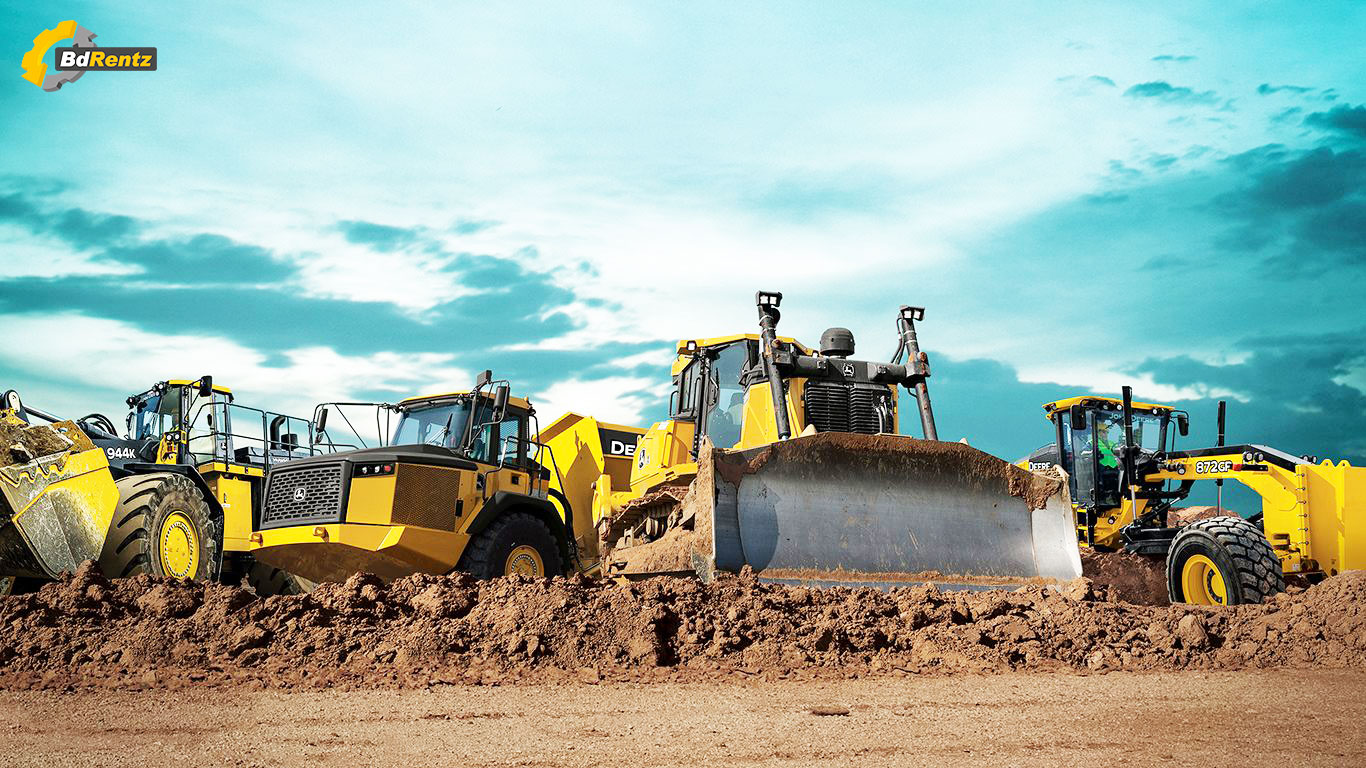Construction Equipment Rentals: Strong Machinery for Your Tasks
Construction Equipment Rentals: Strong Machinery for Your Tasks
Blog Article
Maximize Your Spending Plan by Recognizing the Expenses Related To Building And Construction Equipment Services
Comprehending the full extent of expenses connected with building tools rentals is crucial for optimizing your budget plan. While the first rental charge may appear straightforward, countless added costs-- such as transportation, fuel surcharges, and upkeep-- can quickly collect, impacting your economic planning. In addition, understanding numerous charges and the ins and outs of rental agreements can aid stay clear of unforeseen economic burdens. What techniques can be utilized to efficiently manage these prices and ensure a more effective rental experience?
Summary of Rental Prices
When thinking about construction devices services, comprehending the associated expenses is paramount for efficient budgeting and project planning. Rental costs can differ considerably based upon several elements, consisting of devices type, duration of service, and area. The preliminary rental cost often shows the tools's market demand and its connected functional capabilities, affecting the overall cost.
In enhancement to the base rental rate, supplementary expenses may occur, such as transportation charges, gas surcharges, and upkeep costs. It is vital to make up these extra expenses to accurately assess the total price of renting equipment. The rental period can influence rates; longer services might certify for affordable rates, while short-term rentals might incur higher daily fees.

Malfunction of Rental Rates
An extensive understanding of rental rates is important for contractors and job supervisors aiming to optimize their budgets. Rental prices for building and construction devices generally contain several parts, consisting of base rates, time-based costs, and usage fees.
Base prices are the core fees related to the service of the devices, typically established by the kind and size of the machinery. These prices can vary considerably, influenced by elements such as tools demand, availability, and local market trends. Time-based charges, which might be daily, weekly, or monthly, serve to accommodate various project timelines and rental periods.
Furthermore, rental rates might include use charges, which apply when tools is used beyond a defined threshold, making certain that the rental business can make up deterioration. Seasonal demand variations can likewise influence rental rates, with peak building and construction seasons typically regulating higher costs.
In addition, comprehending the rental firm's plans regarding upkeep and insurance coverage can offer further understanding into the total price structure. By assessing these components, specialists can make educated choices, guaranteeing the choice of rental tools aligns with both job needs and budget restrictions.
Additional Charges to Think About
Recognizing the details of added costs is vital for service providers to handle their total service expenditures properly. Beyond the typical rental rates, various supplemental fees can considerably affect the total price of tools service. These charges typically include delivery and pick-up fees, which can vary based on range and logistics associated with carrying the devices to and from the task site.
Moreover, some rental firms might impose gas surcharges if the equipment is returned with much less gas than when leased. It is also vital to recognize possible cleansing fees, particularly for customized devices that needs extensive maintenance after usage.

Completely reviewing the rental arrangement and clarifying these added costs upfront can aid professionals avoid unforeseen costs and make sure that spending plans continue to be undamaged throughout the job lifecycle.
Maintenance and Fixing Expenses
Normal repair and maintenance expenditures are typically overlooked aspects that can significantly influence the total expense of building tools rentals. When leasing tools, it is essential to take into consideration not only the rental charges but likewise the possible costs connected with keeping the equipment in optimal operating condition.
Several rental companies include fundamental maintenance as component of the rental arrangement; however, a lot more considerable repairs or unforeseen breakdowns can result in extra costs. It's important to assess the rental agreement meticulously to understand what maintenance services are covered and what responsibilities fall on the tenant.
Moreover, tools that is not properly maintained can bring about inadequacies at work website, possibly triggering hold-ups and boosting task prices. more information To minimize these threats, it is suggested to carry out routine evaluations and keep open interaction with the rental copyright pertaining to any kind of concerns that develop during usage.
Insurance and Obligation Costs
Insurance coverage and obligation expenses are crucial components that can considerably impact the total expense of building equipment services (dozer rental). These costs make certain that both the rental business and the customer are shielded from prospective financial losses occurring from crashes, damages, or theft throughout the rental period

In addition, clients need to be conscious of any kind of deductibles or exclusions in the insurance coverage, as these can affect prospective out-of-pocket expenditures. Recognizing the terms and conditions of any kind of insurance policy coverage is crucial to stay clear of unanticipated prices. Ultimately, budgeting for insurance coverage and responsibility expenses can help make sure a smoother rental experience and protect against monetary threats related to building jobs.
Verdict
In conclusion, a comprehensive understanding of the costs linked with building devices rentals is essential for effective budget monitoring. Eventually, informed decision-making regarding tools leasings adds to the total success of building and construction ventures.
Rental costs can differ substantially based on several elements, including tools type, period of leasing, and location (scissor lift rental). The rental period can impact rates; longer rentals might qualify for affordable rates, while temporary services may incur greater daily fees
By conducting detailed study and engaging with reliable rental business, contractors can successfully navigate the complexities of rental rates, inevitably optimizing their economic resources.
Beyond the standard rental rates, different auxiliary fees can considerably affect the overall price of equipment leasing. Rental business frequently give responsibility insurance coverage that covers injuries to 3rd parties or damages to building, while tools damages insurance policy can cover the expense of repair work or substitute if the rented equipment is harmed.
Report this page